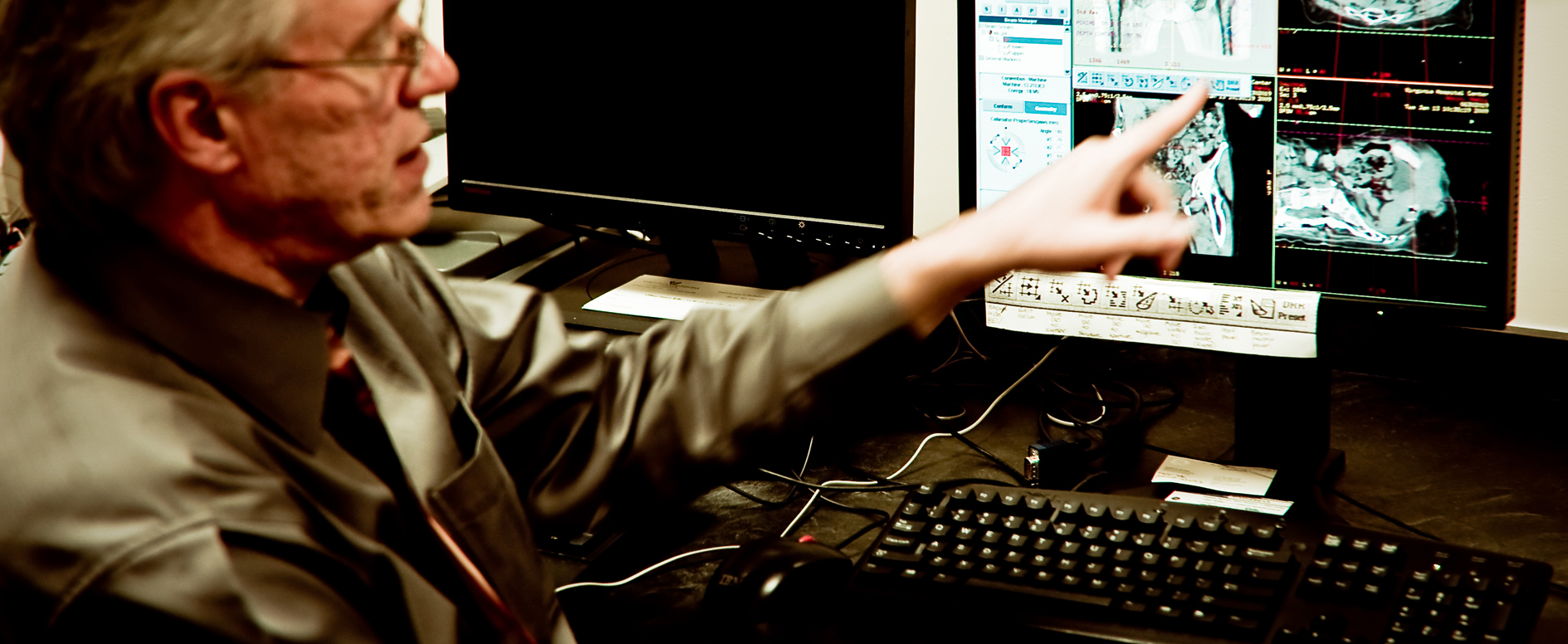
Radiation Therapy
Radiation therapy is often used with surgery and chemotherapy to treat cancers of the colon, rectum and anus. Treatment involves focused radiation to the bowel and pelvis to treat cancer cells in the area. Surrounding healthy tissue can be affected, but normal cells are often better able to heal from radiation injury than are cancer cells.
Frequently, the goal of treatment is “organ-preservation”. With organ-preservation, the part of your body that controls your bowel movements, the anus, is not removed. Radiation therapy is often used in organ-preserving approaches, with the result that you will continue to be able to have bowel movements through your anus. If the anus does have to be removed, you would wear a bag on the outside of your abdomen to collect and store your bowel movements.
- For colon cancer, depending on the location and stage of your cancer, radiation therapy can lower the chance of recurrence.
- For some rectal cancers, radiation therapy is given before surgery, with or without chemotherapy, to make the tumor smaller so it can be removed more easily. In some cases, radiation and chemotherapy are given after surgery instead of before surgery.
- Anal cancer can often be treated with radiation therapy and chemotherapy, as an “organ-preserving” approach that avoids the need for surgery.
Surgery
Surgery often plays a key role in treatment. For colorectal cancers, it is the main curative treatment. The surgeon will determine how much of the large bowel (the colon) needs to be removed. Because the tumor can spread to lymph nodes nearby, some lymph nodes are often removed at the time of surgery. Depending upon the location of the tumor, surgery may or may not allow normal bowel function afterwards.
For anal cancers, surgery is less frequently used at the time of diagnosis because effective “organ-preserving” approaches with chemotherapy and radiation therapy are available. If bowel function is poor, sometimes surgery is used at first, but often it is reserved as a second chance treatment when “organ-preserving” treatment does not succeed. Because surgery for the anal canal involves removing the area responsible for bowel movements, a surgery called a colostomy to re-route bowel movements to a bag outside of the body is usually necessary as well.
Medical Therapy
While surgery and radiation focus directly on treating the bowel or pelvic area, medication is often recommended to improve cure rates. A medical oncologist will evaluate you and determine what medications may be most helpful.
Chemotherapy is a kind of medication that can destroy cancer cells by different methods. Often, two or more drugs may be combined for the best results. The dose and schedule for treatment varies. Some chemotherapy may be given once every few weeks, while in other cases it is given daily. It also differs depending upon the type of cancer. For more details about chemotherapy medications, ask your medical oncologist about what treatment options may be best for you.






